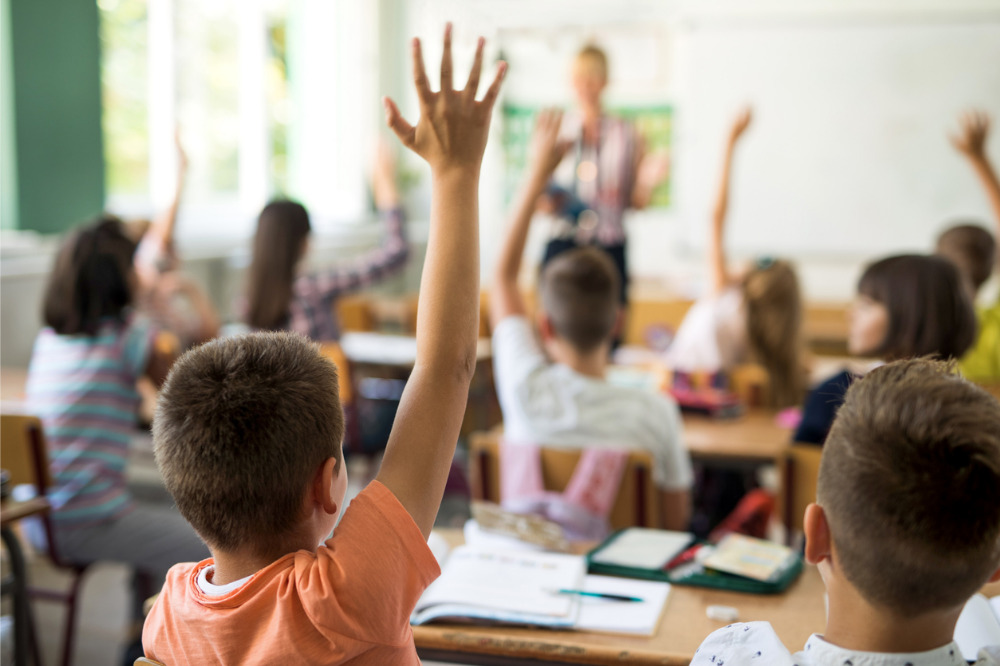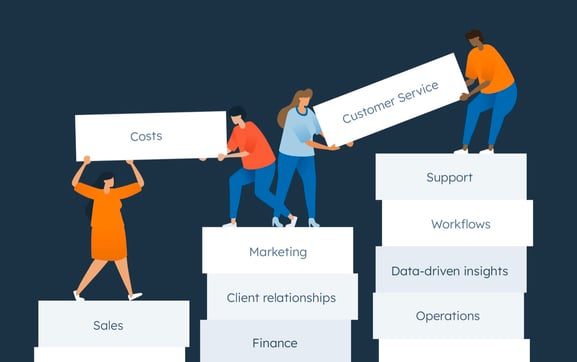
For today’s more youthful technology of lecturers, educational apps are about as commonplace and familiar as textbooks. On the other hand, for quite a few academics who began their placement ahead of the arrival of the Net, the mass proliferation of electronic systems was a surreal, confronting expertise.
Rapid ahead to 2022, and there appears to be to be as many edtech apps as there are college students. The good news is, most educators are able to mix technological innovation into their work opportunities seamlessly, encouraging to deal with their classes and obtain precious insights into how their learners are mastering.
Even so, new scientific studies propose the mass proliferation of edtech resources has some alarming implications for the digital privateness, and security, of youngsters.
Significant tech in our educational institutions: some stressing developments
A modern investigation that analysed about 160 academic apps and web-sites which ended up used in 49 nations around the world like Australia through the COVID-19 pandemic revealed that 4 million Australian kids’ privateness may have been breached.
The investigation, by Human Legal rights Watch, indicated 89% of the instructional technologies (EdTech) products made use of could have put children’s privacy at threat by monitoring their on line exercise and sharing their details with advertisers.
Professor Ganna Pogrebna, executive director of the Cybersecurity and Details Science Institute at Charles Sturt College, is a pioneer in behavioural information science. Her intensive experience involves currently being the Guide of the Behavioural Knowledge Science strand at The Alan Turing Institute – the nationwide centre for synthetic intelligence (AI) and info science in London (Uk) ─ where she is also a Fellow doing work on hybrid modelling approaches among behavioural science and information science.
“While we are however ready for the Human Rights Enjoy to release the complex facts of their analyze, Adobe Hook up, Minecraft Education and learning Version and Education and learning Ideal had been named amongst those people concerned in the on-likely EdTech controversy,” Professor Pogrebna informed The Educator.
“Each of these equipment has a diverse use and has different likely threats, which in some instances may well be alleviated to a appreciable diploma. For case in point, it is apparent that in the modern-day entire world coding and programming abilities are important and Minecraft is typically employed in school rooms to assistance learners gain these worthwhile abilities. Nevertheless, the dilemma is: how is this software employed?”
Professor Pogrebna claims Minecraft, for case in point, can be made use of offline, in which case no data about the pupil will be handed on to any third get-togethers.
“It would appear that the equilibrium has not tipped as well much in Massive Tech’s favour in the classroom however. Educational facilities in Australia actively really encourage diverse classroom instruments alternatively of adopting one particular computerised platform,” she claimed.
“At the very same time, educational institutions require to deal with the truth that personal computer-similar techniques are necessary in the modern day Industrial Revolution 4. planet.”
Professor Pogrebna reported it should be acknowledged that schools are at this time planning persons who will be retiring in 60 years’ time and that collaboration concerning human and algorithms in the long term will be necessary.
“So, each school’s intention is not to prohibit or limit technological know-how completely, but to employ effective danger evaluation mechanisms, which would sufficiently measure opportunity dangers of employing distinctive academic engineering in classrooms,” she said.
“In a nutshell, the job of each college is to turn the EdTech Frankenstein into the EdTech Einstein, which would help our children get the required techniques devoid of offering up their human and electronic rights.”
‘We should unlearn the pattern of blindly trusting technology’
Professor Pogrebna says regulation ought to not only focus on privateness but protect all little one details – not just the details gathered by EdTech.
“There is considerably talk about regulation and governance in the technological domain, however we should not count on regulation by itself,” she claimed.
“Each of us must train ourselves and our young children to mirror on the various inputs that digital technological know-how and algorithms are giving us as inputs into our choice-creating method. Only through regaining this capability to halt and mirror will we at any time be ready to get back our independence as human conclusion-makers.”
Professor Pogrebna says that when there is a rising pattern in direction of people understanding far more about how their personal facts is utilized, they usually fall short to fully grasp how much ability algorithms have and how algorithms are influencing their conclusions.
“For case in point, couple of people realise that social media platforms are shaped by algorithms and information that we and our children consume every single day on those platforms is picked and promoted based mostly on algorithmic logic,” she claimed.
“It is a issue of encounter. As individuals get made use of to algorithms and obtain more expertise in working with algorithms, they will arrive to realise that what machines are providing to them is not automatically the best outcome for them.”
Professor Pogrebna pointed out that equipment require data to deliver tips and the algorithms are only as excellent as the facts that are utilized to train these algorithms.
“If individuals recognize that, they will be capable to make far more knowledgeable conclusions about no matter whether algorithmic advice is superior for them and our endeavor is to teach ourselves and our small children about the value of our particular information and the contexts in which our decisions might be affected by algorithms,” she stated.
“As extended as we are educated, we can affect our practices of trusting technology and prevent really serious troubles, generating absolutely sure that our legal rights and freedoms are preserved.”
How faculties and parents can make a distinction
Professor Pogrebna says there are some important possibilities for communities to convey about significant transform when it will come to children’s attitudes to technological innovation.
“I believe that we ought to not go away it to Major Tech providers to decide our fate. We will see a growing opposition in the EdTech market place. Yet, end users of engineering will also achieve expertise in interacting with technological innovation,” she said.
“We must educate our children much better electronic hygiene – specifically, creating confident that they do not give absent their valuable info to unidentified purposes. In accordance to my research, overpowering the greater part of folks in Australia as properly as about the world down load applications without the need of examining Conditions and Problems.”
Professor Pogrebna claimed that although this may well be hard to transform at the individual stage, bigger training about the significance of electronic hygiene can be a potent preventative evaluate.
“If from the incredibly younger age we demonstrate to small children what they personal information are, how to defend their information, and, most importantly, why their info must be protected, in a couple years’ time we will be in a substantially far better position as a modern society,” she reported.
“This could be obtained not only by way of regulation, but also via better educational programmes at faculty that attract notice to these issues, as well as by using guardian-baby conversations about personalized digital hygiene.”
The Human Legal rights Observe report cited in this article was revealed on May well 25 and titled, ‘How Dare They Peep into My Personal Lifetime?’: Children’s Rights Violations by Governments that Endorsed On the net Learning in the course of the Covid-19 Pandemic’.





More Stories
English Language Teaching and Learning: Creating a “Smart” Classroom
Science and Technology, IT And Space
Universal Design and Assistive Technology